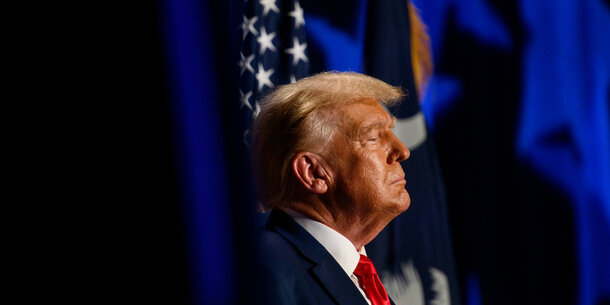On September 6, 2023, several Colorado voters brought a lawsuit seeking to bar former president Donald Trump from appearing on Colorado’s presidential primary ballot. The voters argued that Trump is disqualified from serving as president under Section 3 of the 14th Amendment because he incited an insurrection on January 6, 2021. Section 3 of the 14th Amendment bars anyone from holding office if they swore an “oath . . . to support the Constitution of the United States” as a federal or state officer and then “engaged in insurrection or rebellion” against the Constitution or gave “aid or comfort” to insurrectionists.
On November 17, 2023, a Colorado trial court concluded that Trump engaged in insurrection under Section 3, but determined that Section 3 does not apply to the office of the president, and therefore permitted Trump to appear on the presidential primary ballot. On December 19, 2023, the Colorado Supreme Court reversed the lower court’s decision and held that Trump is disqualified from holding the office of President, and as a result, cannot be listed as a candidate on the presidential primary ballot.
On January 3, 2024, Trump asked U.S. Supreme Court to overturn the Colorado high court’s decision. The plaintiffs in the case also asked the U.S. Supreme Court to take up the appeal. On January 5, 2024, the U.S. Supreme Court agreed to hear the case.
The Brennan Center, along with Protect Democracy, Campaign Legal Center, and the League of Women Voters and the law firm Jenner & Block, filed an amicus brief in the U.S. Supreme Court in support of neither party.
The brief urges the Court to reject Trump’s attempts to revive the independent state legislature theory on appeal. Trump argues that the Colorado high court’s interpretation of the Colorado Elections Code violated the will of the state legislature and, as a result, violated the Electors Clause of the U.S. Constitution. That argument is a restatement of the independent state legislature theory, a radical misreading of the Constitution that the U.S. Supreme Court rejected less than a year ago, in Moore v. Harper.
Our brief explains that Moore v. Harper rebuffed the argument that the Elections and Electors Clauses vest exclusive authority in state legislatures to set the rules regarding federal elections. The Court made clear that federal courts should not review state court interpretations of state law regulating federal elections except in the rare occasion when a state court violates its ordinary judicial role. In this case, the Colorado Supreme Court acted squarely within its authority as a court when it interpreted the Colorado Elections Code using ordinary methods of statutory interpretation. Regardless of how the Court rules on the other legal issues in the case, it should not second-guess state courts’ ordinary interpretations of state law. To do would violate Moore and create massive uncertainty for election officials and voters.






